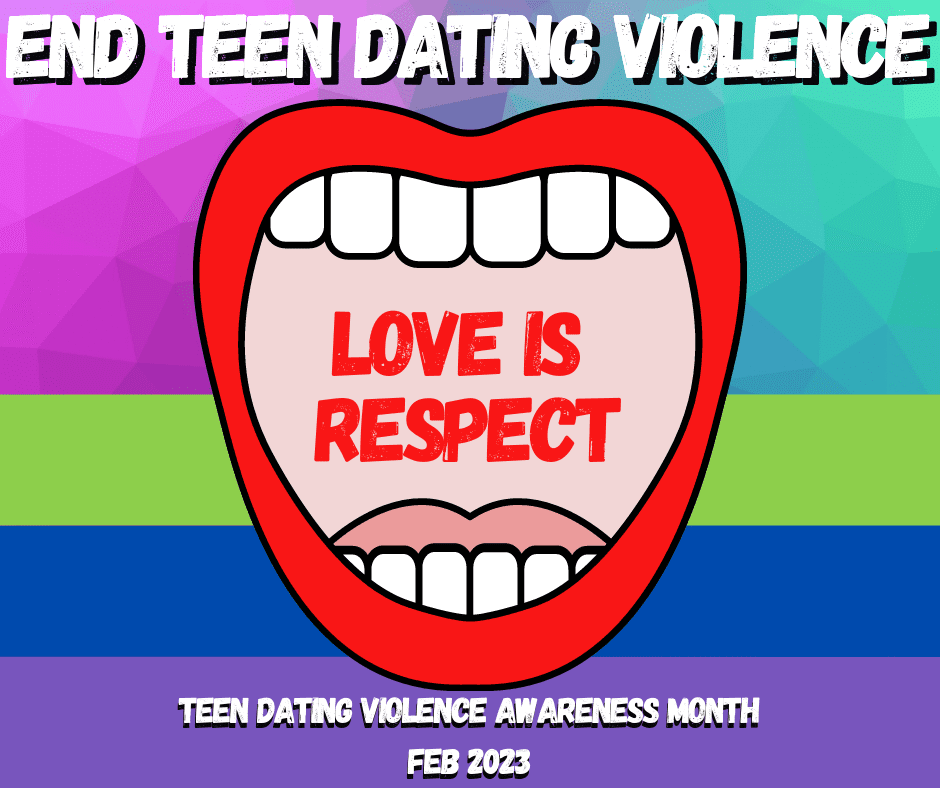
By: Shelly-Anne Johnson, LCSW
Jess is a 13-year-old middle schooler and the newest member of the Jefferson High track team. She is new in town and excited about the opportunity to meet new friends. This one student Mark has been very warm and helpful, and she welcomes his assistance as she tries to navigate a new school and town. They start seeing each other every day after school, during practice and at school meets as he is a member of the track team as well. A few months go by and Jess starts realizing how controlling and manipulative Mark is. He tells her who to talk to at school and where to sit. He has even gone as far as telling her what to wear. Jess starts becoming fearful of Mark as he gets angry and shoves her when she does not do as he instructs. Jess is afraid to tell anyone because Mark “loves her” and is the only one that has been helping her since she started at school. He is her only true friend. The violence escalates and now Mark routinely puts her down and hits her. Jess makes excuses for Mark because in between the abuse, “he’s the nicest person.” Jess’s grades start deteriorating, she is let go from the track team due to repeated emotional breakdowns in practice and missing important trainings. She remembers what happened to her mom when she reached out for help after her abuse by Jess’s father, how things got so bad that they had to run away, and she did not want that. So, she endured the abuse until a classmate brought up their suspicions to the school counselor and Jess finally broke down and told them what was going on. She finally got the help she needed.
Many teens suffer teen dating violence alone out of fear, low self esteem and other factors. Health care providers are now seeing the severe impact this type of violence has on the victim’s mental and physical wellbeing. Teen dating violence has been slowly emerging as a social and public health concern since the 80’s; however, with the rise in popularity of social media, and growing awareness around mental health, this issue is now coming to the forefront of social consciousness.
What is Teen Dating Violence anyway?
Teen Dating Violence is considered an Adverse Childhood Experience (ACES) and is defined as intimate partner violence that can be conducted in person, online or through technology.
Behaviors include:
- Physical violence
- Sexual violence
- Psychological Aggression
- Stalking
Results of a recent national survey indicate that approximately 12 percent of high school students have experienced physical dating violence, but surveys have found prevalence rates for teen dating violence that range between 9 percent and 57 percent. Interestingly, the dynamics of violent teen dating relationships do appear to be different from those of adult abusive relationships. Studies consistently indicate that non-sexual violence in dating relationships involves the reciprocal use of violence by both partners. Several studies in fact have found that girls inflict more physical violence than boys (Foshee, 1996; Gray & Foshee, 1997; Malik, Sorenson, & Aneshensel, 1997; Roscoe & Callahan, 1985; O’Keefe, 1997). The opposite was true for sexual violence with the boys inflicting this form of violence more frequently than girls.
Warning Signs
Here are some warning signs and how Teen Dating Violence might present:
- Using insults, intimidation, or humiliation
- Extreme jealousy, insecurity, or controlling behavior
- Isolation from friends and family
- Unwanted sexual contact of any kind
- Explosive temper or unusual moodiness
- Constantly monitoring social media activities or location
- Invasions of privacy; showing up unannounced
- Leaving unwanted items, gifts, or flowers
- Abusing alcohol or drugs
- Threatening or causing physical violence: scratches or bruises
Risk Factors
There is a strong correlation between risk factors and prevalence. Educating yourself and others about the risk factors can help to determine if you or at friend is at risk of Teen Dating Violence.
Risk factors for both inflicting and sustaining dating violence include:
- Prior exposure to violence
- Attitudes that violence is acceptable in relationships.
- Peer influence-having friends in violent relationships.
- Presence of other problem behaviors such as: drug/alcohol use and engagement in risky sexual behaviors.
How can you Help?
In the opening Vignette, we met 14 yr old Jesse who had fallen victim of Teen Dating Violence. She showed some warning signs and multiple risk factors which greatly increased her chances of becoming a victim of Teen Dating Violence. An important component to becoming an advocate for a friend in the throws of Teen Dating violence is to recognize the warning signs, know the risk factors and where to go for help. Sometimes just being present and holding space for a friend in need provides them with the motivation they need to break the silence and seek help before it’s too late. If you suspect a loved one is struggling with Teen Dating Violence, or if after reading this you see that you are in a Teen Dating Violence relationship, here are some steps to take too keep you and your loved one safe:
- Do not confront the perpetrator.
- Reach out to a trusted adult (e.g., a counselor, teacher, parent, or other family member).
- Go to the nearest ER or mental health hospital like Ridgeview in your area, they are open 24/7.
- Talk about it! (The perpetrator’s power lies in your silence.)
Remember, you are not alone.
Suggested reading:
- What Does Consent Really Meal? by Pete Wallis and Joseph Wilkins
- The Luckiest Girl Alive by Jessica Knoll
- History of Violence by Édouard Louis
References:
